News
Fire Destroys INEC Office In Delta State After Power Surge
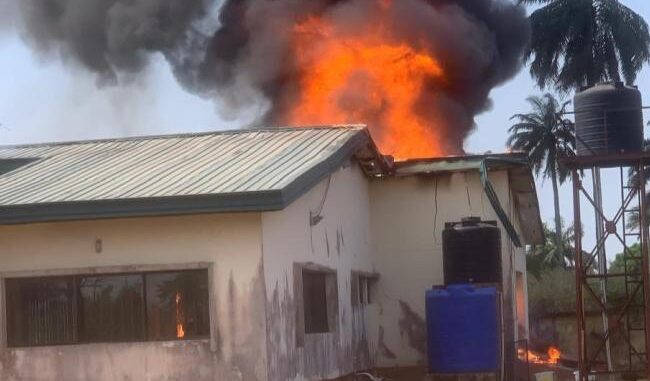
The office of the Independent National Electoral Commission (INEC) in the Ika North East Local Government Area of Delta State was razed by fire on Monday, December 2, 2024.
It was gathered that the inferno was triggered by a sudden power surge following the restoration of the public power supply.
This was contained in a statement released on Tuesday, by the National Commissioner and Chairman, Information and Voter Education Committee, Sam Olumekun, where the commission explained that the stores section where petrol generators and other items were kept was completely razed.
The statement read, “The Commission held its regular meeting today, Tuesday 3rd December 2024. Among other issues, the meeting took note of a preliminary report from the Resident Electoral Commissioner (REC) for Delta State, Mr. Etekamba Udo Umoren, on a fire incident at our Ika North East Local Government Areaa (LGA) office in Owa-Oyibu town.
“The report indicates that the incident occurred in the afternoon of Monday 2nd December 2024 as a result of a sudden power surge following the restoration of public power supply.”
According to Olumekun, “Items destroyed in the inferno include 706 ballot boxes, 50 election bags, 322 apron vests, three electric power generators, 140 stamps, 50 ballot box seals and assorted items such as envelopes, posters, forms and booklets.”
He said, however, there were no injuries or fatalities.
The incident has been reported to the security agencies and emergency services for a thorough investigation.
He said that the Commission appreciated the cooperation of the Nigeria Police Force and the Delta State Fire Service for their response.
Olumekun added that Ika North East is one of the 25 LGA offices in Delta State with 14 Registration Areas (Wards), 238 Polling Units and 131,747 registered voters.
News
Reps Begin Probe Into Alleged Misuse of Agricultural Funds
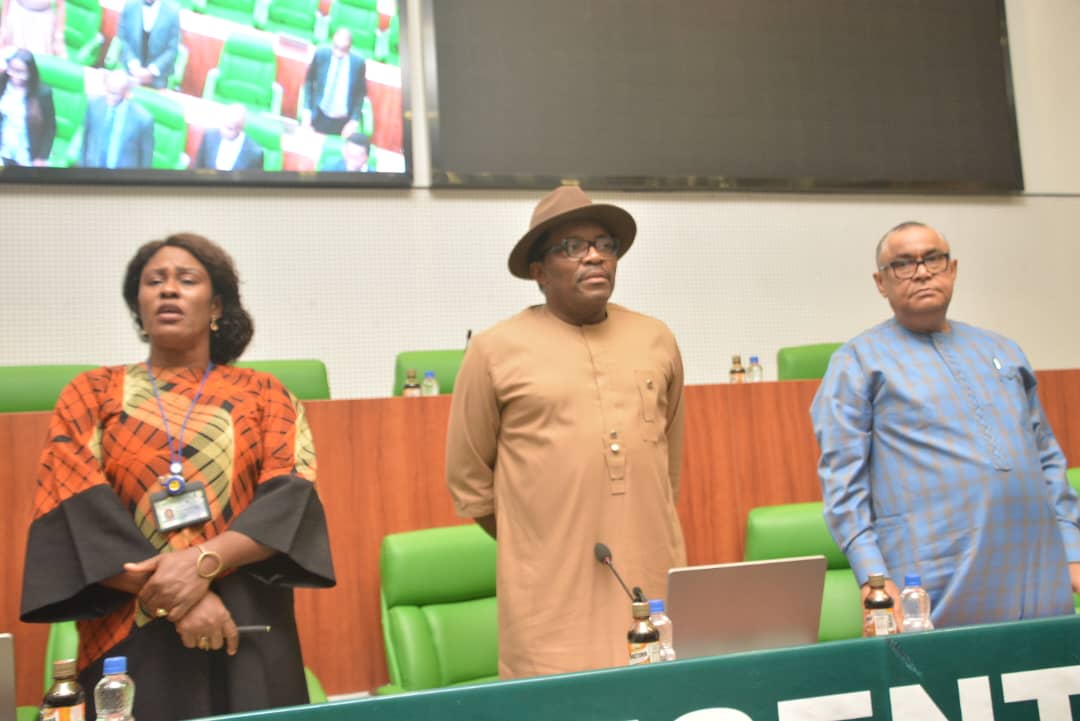
By Gloria Ikibah
The House of Representatives has commenced investigations on the alleged mismanagement of funds meant for agricultural development by government agencies outside the Federal Ministry of Agriculture.
Declaring open the inestigation, Chairman Committee on Nutrition and Food Security, Rep.Chike Okafor, said the hearing was to uncover the truth and ensure accountability in the use of public funds.
Rep. Okafor noted that despite trillions of naira reportedly spent on agriculture over the years, Nigeria still battles food shortages, hunger, and high food prices.
“This hearing is not a witch-hunt. Our purpose is not to target individuals or institutions but to uncover the truth, identify systemic failures, and ensure that public funds allocated for agricultural development are utilized transparently and effectively.
“If these funds had been judiciously spent, we would not be facing the current crisis where millions of Nigerians struggle to afford basic meals,” he said.
The probe, according to the Chairman, follows a motion passed by the House titled “Alleged Mismanagement of Government Agricultural Initiatives and Funding by Departments, Agencies, and Government Programs Outside the Federal Ministry of Agriculture and Food Security”.
He listed key institutions under scrutiny, including the Central Bank of Nigeria (CBN), Nigeria Incentive-Based Risk Sharing for Agricultural Lending (NIRSAL), Bank of Industry (BOI), Bank of Agriculture (BOA), and the National Agricultural Development Fund, among others.
Some of the figures raised by the committee include:
– ₦1.12 trillion disbursed to over 4.6 million farmers through CBN’s Anchor Borrowers Programme (ABP),
– ₦215 billion disbursed by NIRSAL to support agriculture and agribusinesses,
– ₦3 billion given to 22,120 smallholder farmers by BOI,
– ₦59.4 billion in loans for agro and food processing businesses,
– ₦5 billion livestock loan facility to BOA in 2023,
– ₦1.6 billion recovery fund released in 2024 by the National Agricultural Development Fund to fight ginger blight disease.
Rep. Okafor explained that the Committee is empowered by the House rules to investigate how these funds were allocated and used, and determine if they truly made an impact.
He demanded foe detailed information from the agencies covering the period between 2017 and 2024, including lists of beneficiaries, addresses, project locations, loan terms, recovery plans, and collaboration with donor partners.
“The Nigerian people deserve to know how their resources are being used, and this Committee is committed to ensuring that every kobo allocated to agriculture serves its intended purpose,” he said.
He also acknowledged that the Bank of Agriculture recently appointed a new Managing Director and confirmed that a letter to that effect has been received by the Committee.
The Chairman therefore urged all agency representatives to be open and sincere in their presentations, and charged the media and civil society to play their part in holding government accountable.
“The goal is not to antagonize but to collaborate in finding solutions. Where there are gaps, let us address them. Where there are inefficiencies, let us correct them. And where there are infractions, let us take necessary actions to prevent recurrence.
“With that, I declare this investigative public hearing open. I look forward to a robust, insightful, and solution-driven deliberation,” he stated.
Governor of Central Bank of Nigeria CBN, Olayemi Cardoso, represented by Mr Kwasari John Harman, an acting director in CBN said the Apex bank disbursed N1.21 trillions and N871 billion among others
He said that all commercial banks in the country received funds from the federal government on the Anchor Borrowers Scheme of the previous administration.
News
Tinubu: Pascal Dozie’s contributions to Nigeria’s economic architecture left an enduring legacy
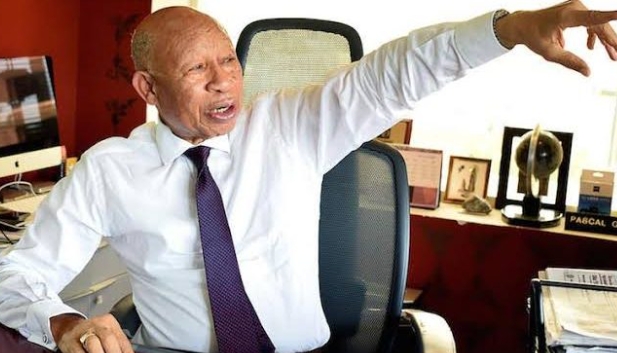
By Kayode Sanni-Arewa
President Bola Ahmed Tinubu extends his heartfelt condolences to the Dozie family, the business community, and all Nigerians on the passing of Chief (Dr.) Pascal Gabriel Dozie, an elder statesman, entrepreneur, and banker. He was 85.
Chief Pascal Dozie, OON, was a visionary whose contributions to Nigeria’s economic architecture left an enduring legacy.
As the founder of Diamond Bank and the pioneer Chairman of MTN Nigeria, he was at the forefront of two of the most transformative sectors in Nigeria’s development journey: banking and telecommunications.
Chief Dozie, a steadfast believer in Nigeria’s vast potential, was pivotal in shaping the financial services industry and expanding access to mobile connectivity nationwide. His influential leadership extended well beyond corporate boardrooms.
In addition to his business acumen, Chief Dozie served as a former director at the Central Bank of Nigeria, President of the Nigerian Stock Exchange, and Chairman of the Nigerian Economic Summit Group, dedicating decades of service to national policy formulation, private sector development, and youth empowerment.
President Tinubu lauds Chief Dozie as “a rare breed business leader whose wisdom, humility, and pioneering efforts laid a foundation upon which many continue to build. His passing is a profound loss to the private sector and Nigeria.”
The President prays for the peaceful repose of Chief Dozie’s soul and extends his condolences to his wife, children, and extended family. He calls upon the Nigerian private sector to honour Chief Dozie’s memory by upholding the values of integrity, innovation, and nation-building, for which he was renowned.
*Bayo Onanuga
Special Adviser to the President
(Information & Strategy)
News
TRADE WAR! U.S. angry over Nigeria’s import ban on 25 products

By Kayode Sanni-Arewa
The country’s reaction comes at a time when tensions are rising over its sweeping tariffs imposed on several countries.
Nigeria’s import ban on 25 different product categories impacts U.S. exporters, particularly in agriculture, pharmaceuticals, beverages, and consumer goods, the United States Trade Representative said in a statement on Monday.
According to the statement posted on its X platform, Nigeria’s restrictions on items like beef, pork, poultry, fruit juices, medicaments, and spirits limit U.S. market access and reduce export opportunities.
“These policies create significant trade barriers that lead to lost revenue for U.S. businesses looking to expand in the Nigerian market.
The country’s reaction comes at a time when tensions are rising over its sweeping tariffs imposed on several countries.
Last week, the Trump administration imposed various tariffs ranging between 10 per cent and 65 per cent on different countries across the world, including Nigeria which got a 14 per cent tariff on its exports to the United States.
Nigerian stocks on Monday recorded their biggest drop in recent times following the impact of U.S President Donald Trump’s tariffs on global trade markets.
Investors lost about N659 billion at the close of trading after the Nigerian Exchange’s All Share Index (ASI) decreased by 1.23 percent, its biggest single-day decline this month.
Stocks like Oando and Honeywell Flour Mills helped to push the market lower. Oando decreased the most, from N42 to N37.80, down by N4.20 or 10 percent, while Honeywell dropped from N11.32 to N10.19, losing N1.13 or 9.98 percent.
The Nigerian Exchange Limited (NGX) All-Share Index (ASI) and equities market capitalisation decreased from the preceding day’s 105,511.89 points and N66.147 trillion, respectively, to 104,216.87 points and N65.488 billion. The Nigerian market’s return this year has decreased to +1.25 percent.
Countries such as China have since said they would retaliate from the imposed tariffs.
China vowed on Tuesday to “fight to the end” against fresh tariffs of 50 percent threatened by US President Donald Trump, further aggravating a trade war that has already wiped trillions off global markets.
The Minister of Finance, Wale Edun, on Monday said that the Federal Government will boost non-revenue as a means of cushioning the adverse effects to trade tariffs imposed on countries by President Trump.
Edun also assured that the Economic Management Team (EMT) will meet to assess the likely impact of the 14 per cent tariff on goods exported from Nigeria to the United States.
He said the EMT will afterwards, make recommendations to cushion its impact on the nation’s economy.
Edun, who was speaking at an event organised by the Ministry of Finance Incorporated on Monday, said that while the adverse effect on Nigeria will be through an oil price plunge, the government is intensifying efforts to ramp up oil production and boost non-oil revenues.
-
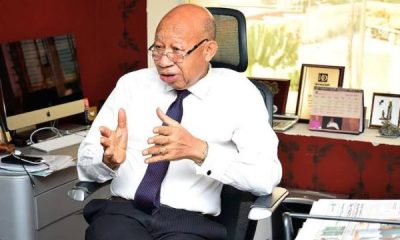
 News7 hours ago
News7 hours agoJust in: Founder of Diamond Bank and ex-chairman of MTN, Paschal Dozie is dead
-

 News14 hours ago
News14 hours agoRainfall washes away newly constructed multi-million naira road in Edo State
-

 News14 hours ago
News14 hours agoEvangelist Kekere Jesu buried amidst deep sorrow
-
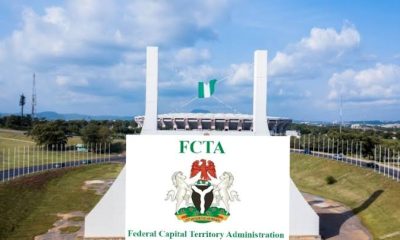
 Metro14 hours ago
Metro14 hours agoStray bullet from VIP convoy kills bystander in Abuja
-

 Sports7 hours ago
Sports7 hours agoReal Madrid keeping tabs on Victor Osimhen
-
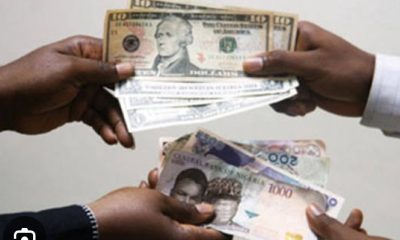
 News8 hours ago
News8 hours agoNaira Nosedives Against Dollar
-

 News8 hours ago
News8 hours ago2Baba’s Lover Natasha Osawaru Fired As Edo Assembly Minority Leader
-

 News13 hours ago
News13 hours agoLG autonomy: Govs block council chairmen from opening CBN accounts


















